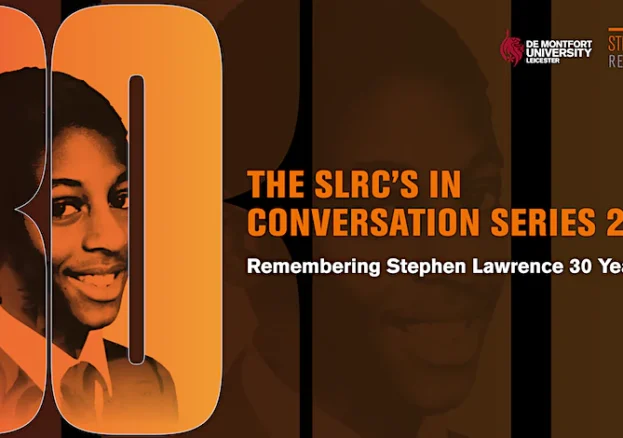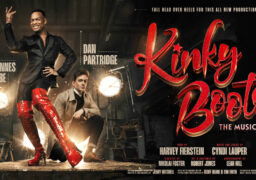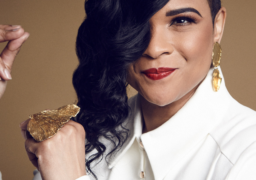
A Stephen Lawrence Reserch Centre and CoDE co-hosted conversation followed by a drinks reception.
In the second of our SLRC in conversation series we invite a discussion that reflects on the (in)visibility of LGBTQ+ Black people in the stories we tell ourselves about Black liberation, solidarity and anti-racist struggle in Britain. In the 1990s, the decade of Stephen’s untimely death, Europe’s first Black Lesbian and Gay Centre (BLGC), established in the 1980s, had secured a permanent home in Peckham. Section 28 criminalising the so-called promotion of homosexuality was still in full effect and Justin Fashanu had become the first professional footballer to come out as gay.
Our intention with the conversation is to open up a discussion that reflects on how Britain’s Black and queer histories of activism, community, resistance, and oppression are remembered, and consider what is at stake when those stories fall through the cracks and are left undocumented.
As community workers, youth workers, academics, equality and diversity professionals and LGBTQ+ advocates – our speakers enter this conversation with a range of expertise, first-hand accounts and archival insights. Collectively, we will explore how Black queer histories are a constitutive part of Black British history and ask what value an inclusive understanding of anti-racist struggles might have for future forms of Black solidarity.
The conversation will be followed by a drinks reception.
Accessibility
Please let us know if you have any accessibility requirements. For further information, you can contact Emma Tsoneva.
Speakers
Chloe Cousins (she/her) is a youth worker and community organiser based in Manchester. Chloe is the strategic lead for Rainbow Noir, a volunteer-led social, peer support and community action group for LGBTQI people of colour (which celebrates its 10th birthday this February!) and a Youth Worker and Co-Director at Colours Youth Network, a national organisation supporting QTIPOC youth and youth workers. Chloe is passionate about creating spaces for QTIPOC to find connections, affirmation and joy. Almost equal to her love of nurturing the community are her house plants and her ever growing Nike Air Max collection!
Sue Lemos is an ESRC funded PhD student in the Department of History at the University of Warwick. Using oral history and archival resources, their doctoral project seeks to illuminate the autonomous political and community organising of queer Black people and people of colour in late twentieth century Britain. Their previous research on the London Black Lesbian and Gay Centre in the 1980s and 1990s was awarded the Warwick History MA Dissertation Prize and the Institute of Historical Research Olivette Otele Prize. Prior to their PhD studies, they volunteered with the Young Historians Project on the African Women and British Health Service project and the Haringey Vanguard, a community heritage and oral history project on LGBTQ+ people and people of colour in Haringey, North London from the 1970s to the 1990s.
Award-winning busybody and recovering academic, Dr Rob Berkeley leads development of BlkOutUK.com, a digital first, community-owned media asset, collaborative leadership network, and care focused collective for and by Black queer men. He was director of the racial justic thinktank, Runnymede Trust (2009-14), before a stint advising the BBC on audience accountability. He serves on the boards of Baring Foundation, Riverside Studios, and is a chair of Doc Society. Rob was awarded an MBE in 2015 for services to equality.
Femi Otitoju has spent her life working for LGBTQ+ equality as an activist, volunteer, writer, campaigner. Femi volunteered for the London Lesbian Line and later for the London Lesbian and Gay Switchboard. She helped set up the first Black Lesbian Group in the early 1980s and much of her lesbian-feminist campaigning at the time included Spare Rib, volunteering in women’s centres, producing the London Women’s Liberation Newsletter, and contributing to books and magazines including Outrage and Outwrite, Active Citizens, and Radical Records. She founded the Challenge Consultancy in 1985 to provide high quality training and consulting services initially to the public and the not-for-profit sectors.





